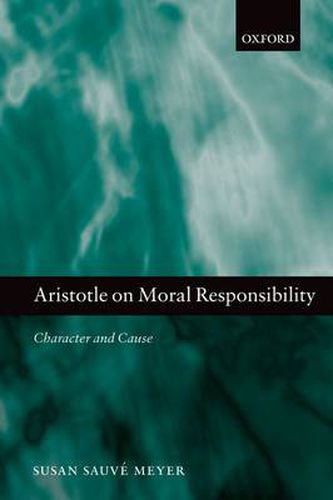This is a reissue, with new introduction, of Susan Sauve Meyer’s 1993 book, in which she presents a comprehensive examination of Aristotle’s accounts of voluntariness in the Eudemian and Nicomachean Ethics. She makes the case that these constitute a theory of moral responsibility–albeit one with important differences from modern theories. Highlights of the discussion include a reconstruction of the dialectical argument in the Eudemian Ethics II 6-9, and a demonstration that the definitions of ‘voluntary’ and ‘involuntary’ in Nicomachean Ethics III 1 are the culmination of that argument. By identifying the paradigms of voluntariness and involuntariness that Aristotle begins with and the opponents (most notably Plato) he addresses, Meyer explains notoriously puzzling features of the Nicomachean account–such as Aristotle’s requirement that involuntary agents experience pain or regret. Other familiar features of Aristotle’s account are cast in a new light. That we are responsible for the characters we develop turns out not to be a necessary condition of responsible agency. That voluntary action has its origin in the agent and that our actions are up to us to do and not to do –often interpreted as implying a libertarian conception of agency–turn out to be perfectly compatible with causal determinism, a point Meyer makes by locating these locutions in the context of Aristotle’s general understanding of causality. While Aristotle does not himself face or address worries that determinism is incompatible with responsibility, his causal repertoire provides the resources for a powerful response to incompatibilist arguments. On this and other fronts Aristotle’s is a view to be taken seriously by theorists of moral responsibility.





